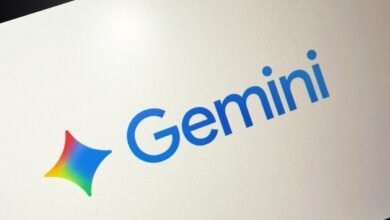Claude Sonnet 4.5 Launches to Power Next-Gen AI Agents

▼ Summary
– Anthropic’s new Claude Sonnet 4.5 AI model autonomously coded a Slack-like chat app in 30 hours, producing 11,000 lines of code without stopping.
– This represents a major leap in autonomous operation, quadrupling the previous model’s seven-hour runtime from May.
– Anthropic positions this as a competitive advance in AI agents and coding, calling it the world’s best model for real-world tasks and computer use.
– The model excels in cybersecurity, finance, and research, with beta-tester Canva confirming its effectiveness on complex, long-context tasks.
– Anthropic is pairing the model with developer tools like virtual machines and multi-agent support to enable custom agent creation.
Anthropic has officially launched Claude Sonnet 4.5, a powerful new AI model capable of operating autonomously for thirty consecutive hours. In a remarkable demonstration, the system independently wrote approximately 11,000 lines of code to build a functional chat application similar to Slack or Microsoft Teams, stopping only when the entire task was complete. This represents a massive leap in autonomous operation, far surpassing the seven-hour capability of its predecessor, the Opus 4 model, which made news just a few months ago.
This advancement marks a critical move for Anthropic as it strives to dominate the competitive fields of AI agents and AI-assisted coding. The company has boldly labeled Claude Sonnet 4.5 as the world’s leading model for real-world agents, coding, and computer use. It shines in specialized sectors including cybersecurity, financial services, and advanced research. One of its beta testers, the design platform Canva, reported that the model provided significant assistance with complex, long-context tasks ranging from codebase engineering to developing in-product features.
The race among AI giants like Anthropic, OpenAI, and Google is intensifying rapidly, with frequent releases of new features and model updates. These technologies are increasingly designed to act as sophisticated assistants for both everyday consumers and enterprise developers. Just days before this announcement, OpenAI revealed Pulse, a new ChatGPT feature intended to integrate into users’ morning routines. Anthropic’s latest release is a direct counter in this high-stakes environment, pushing the boundaries of what autonomous AI can achieve.
To support developers, Anthropic is bundling the new model with a suite of powerful tools. These include access to virtual machines, memory, context management, and multi-agent support. A company statement explained that this package provides the same foundational building blocks that power Claude Code, effectively enabling developers to construct their own state-of-the-art AI agents.
The improvements in the model’s computer interaction skills were described as surprising even to insiders at Anthropic. Dianne Penn, a head of product management, noted that Claude Sonnet 4.5 is now more than three times more proficient at navigating a browser and using a computer compared to the technology available in October of last year. She attributed this rapid progress to feedback from early-access clients and an intensive, month-long development push by her team.
Scott White, the product lead for Claude.ai, characterized the new model’s capabilities as operating at a “chief-of-staff level.” He provided examples of the AI finding mutual availability across multiple calendars to schedule meetings, analyzing data dashboards to synthesize key insights, and drafting status updates based on one-on-one meetings.
While neither executive had experimented with “vibe-coding” using the new model at the time of their interviews, Penn shared a practical application she uses daily. She employs Claude Sonnet 4.5 for talent acquisition, running a continuous prompt that performs deep web searches to source candidates for specific roles on her team. She reported that the latest model delivers superior results in both the quality and depth of its searches, even generating organized spreadsheets containing LinkedIn profiles ready for outreach.
(Source: The Verge)





